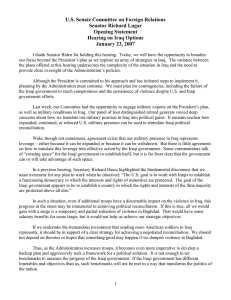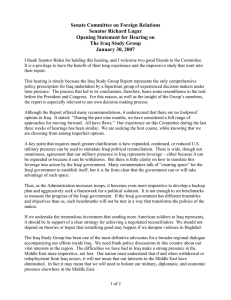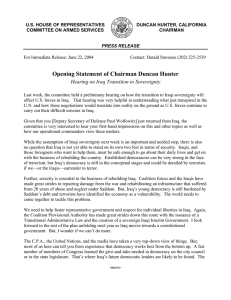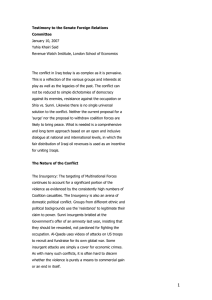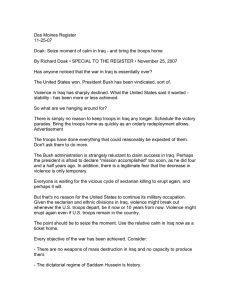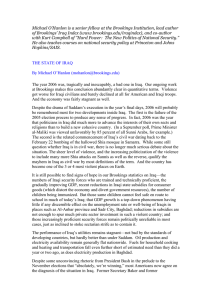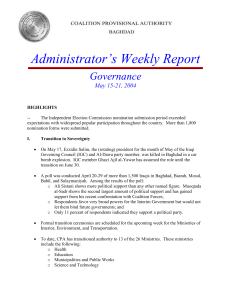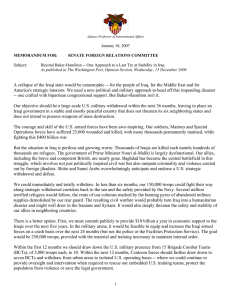Senate Committee on Foreign Relations Senator Richard Lugar Political Strategy in Iraq
advertisement
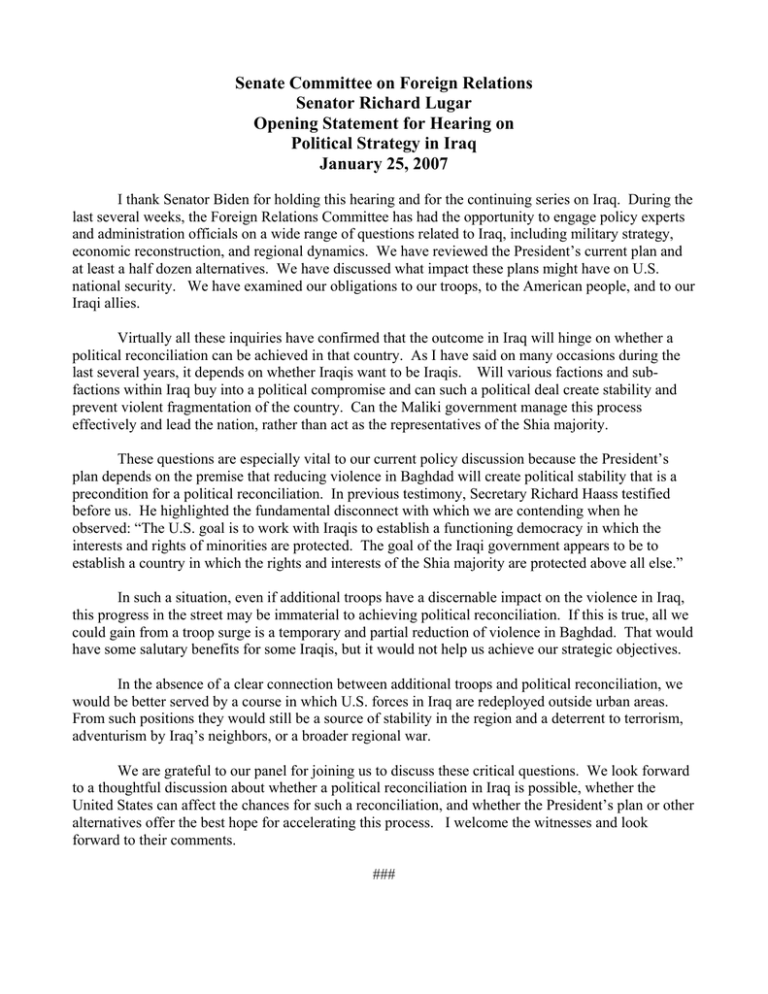
Senate Committee on Foreign Relations Senator Richard Lugar Opening Statement for Hearing on Political Strategy in Iraq January 25, 2007 I thank Senator Biden for holding this hearing and for the continuing series on Iraq. During the last several weeks, the Foreign Relations Committee has had the opportunity to engage policy experts and administration officials on a wide range of questions related to Iraq, including military strategy, economic reconstruction, and regional dynamics. We have reviewed the President’s current plan and at least a half dozen alternatives. We have discussed what impact these plans might have on U.S. national security. We have examined our obligations to our troops, to the American people, and to our Iraqi allies. Virtually all these inquiries have confirmed that the outcome in Iraq will hinge on whether a political reconciliation can be achieved in that country. As I have said on many occasions during the last several years, it depends on whether Iraqis want to be Iraqis. Will various factions and subfactions within Iraq buy into a political compromise and can such a political deal create stability and prevent violent fragmentation of the country. Can the Maliki government manage this process effectively and lead the nation, rather than act as the representatives of the Shia majority. These questions are especially vital to our current policy discussion because the President’s plan depends on the premise that reducing violence in Baghdad will create political stability that is a precondition for a political reconciliation. In previous testimony, Secretary Richard Haass testified before us. He highlighted the fundamental disconnect with which we are contending when he observed: “The U.S. goal is to work with Iraqis to establish a functioning democracy in which the interests and rights of minorities are protected. The goal of the Iraqi government appears to be to establish a country in which the rights and interests of the Shia majority are protected above all else.” In such a situation, even if additional troops have a discernable impact on the violence in Iraq, this progress in the street may be immaterial to achieving political reconciliation. If this is true, all we could gain from a troop surge is a temporary and partial reduction of violence in Baghdad. That would have some salutary benefits for some Iraqis, but it would not help us achieve our strategic objectives. In the absence of a clear connection between additional troops and political reconciliation, we would be better served by a course in which U.S. forces in Iraq are redeployed outside urban areas. From such positions they would still be a source of stability in the region and a deterrent to terrorism, adventurism by Iraq’s neighbors, or a broader regional war. We are grateful to our panel for joining us to discuss these critical questions. We look forward to a thoughtful discussion about whether a political reconciliation in Iraq is possible, whether the United States can affect the chances for such a reconciliation, and whether the President’s plan or other alternatives offer the best hope for accelerating this process. I welcome the witnesses and look forward to their comments. ###


